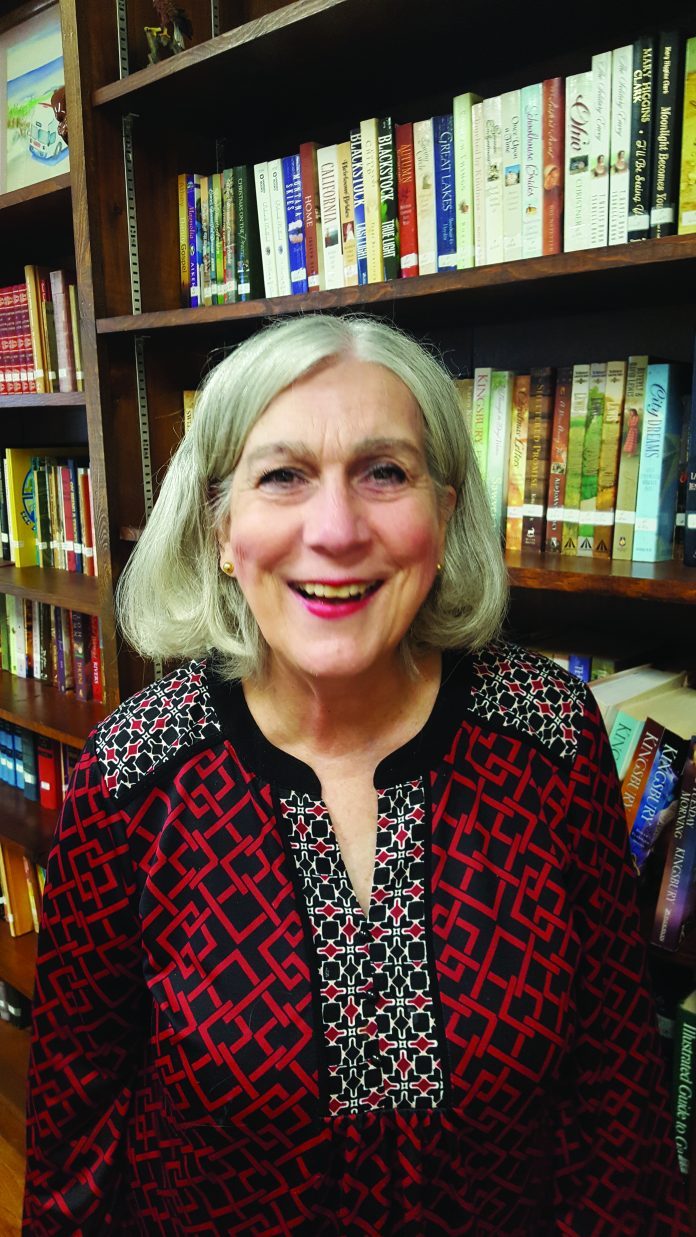By Beth Pinyerd
Labor Day is next Monday (Sept. 2!) As a child, I remember that we didn’t start the school year until after Labor Day because of our school’s lack of an air conditioning system.
As a child, I really looked forward to Labor Day but I didn’t know why we celebrated it. This is a perfect time to emphasize to your children what community helpers do as we approach this day off for many of us and emphasize to them to make our workers feel special as we celebrate their achievements.
Take time to explain to your child the different jobs our community helpers do. Talk to them about the jobs of the police officers, fire fighters, doctors, nurses, teachers, utility workers, mail carriers and bakers, among many others. As a teacher and children’s director, my mindset is “someone’s trash is a teacher’s treasure.”
I love to do crafts with these treasures. Children love making unusual hands on crafts. Such crafts as an occupations collage require no expense but just pictures from magazines, glue and a piece of paper.
Look in your closets for old shoeboxes to make entire towns, fire trucks, police cars, etc. Children get so excited and cherish their own crafts.
The first week in September is Safety Week. There are key lessons that all young children need to know. They are learning about calling 911 when there is an emergency, buckle up for safety in the car, not to wander off, not to talk to strangers, poison prevention, bicycle safety and water safety.
Parents, it is so very important for children to be taught how to dial 911. The safety reasons for teaching them include fire, accidents, and sudden illnesses that may strike a parent or caregiver. Present this safety lesson to your child in a calm, non-threatening manner.
As a teacher, I use a toy telephone to teach children to learn how to dial 911. Children enjoy playing with old cell phones or home phones too. I love to sit back and hear “pretend conversations” that children have on toy or old phones in the nursery.
With children who are three years old or older, they can practice writing 911 as well as using their pointing finger to trace the number. Go over the situations that warrant calling 911. Put a sticker on your phone with 911 so your little one will remember the number to dial.
We used to have a song “buckle up for safety, buckle up” to remind young children to put on their safety belts. The best way to teach this lesson is to have your child simply to practice buckling and unbuckling the seatbelt in the car.
In teaching your child not to talk to strangers, I have used the story of Little Red Riding Hood. Books can be checked out of the library and too many of we adults have memorized this story to share.
Be sure to instruct your child with people they don’t know not to ever get in the car or go with strangers. In teaching my students, I instruct them not to accept candies or go away from the sight of their parents. Develop a security system with your child.
With poison prevention, the best home policy is to put them up out of your young child’s reach. Tell them not to touch or drink anything with a skull or an “X” on it which means poisonous materials.
As a teacher, I deeply appreciate to know when your child is allergic to certain foods or conditions.
It is the parent’s responsibility to let a teacher or director know about allergies so the information can be noted on a card. There are children who are allergic to certain cleaning products, dust and mold. Let the caregiver know this right away. This is all a part of safety.
When your child is riding a bicycle (with or without) training wheels or skateboarding, be sure they are wearing a helmet. A local police officer would welcome the opportunity to explain this to your child like they do in a classroom.
Have a fire escape plan in your home as well. “Stop, drop and roll” is what local firefighters teach our children when they come to the classroom or we go on field trips. Visit the local fire department to find out the best way to explain to your child how to survive in this emergency.
With water safety, again the best safety procedure is to tell your twos, threes and fours to stay clear of the water unless they are with their parents or caregivers. Try to have your child take swimming lessons. The very best ways to save your child’s life is under the instruction of a certified Red Cross provider.
Have a safe and fun-filled Labor Day weekend!
Pinyerd has taught young children in the early childhood classroom for 34 years, as well as outreaching to the elderly in intergenerational settings. She has taught and outreached in the schools in Opelika and Baldwin County. She holds a master’s degree in early childhood education as well as a bachelor’s degree in family and child development both from Auburn University. Her husband is the late Carl Pinyerd, and she has one son, Gus Pinyerd, who has taught her so much about learning. Classroom Observer is here to serve the community in sharing the wonderful teaching programs in our local public schools, private schools and homeschools. The column is provided to enrich the education of our children, youth and families. Classroom Observer welcomes educational news, school news, pictures and events by e-mailing her at donnapinyerd@charter.net


